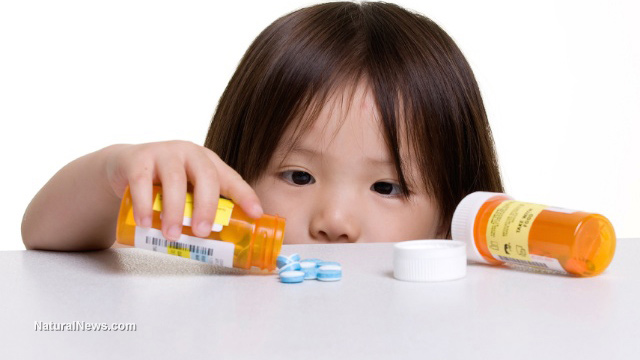More US teenagers are killed by Big Pharma than by prohibited drugs, study shows
Friday, April 03, 2015 by: J. D. Heyeshttp://www.naturalnews.com/051621_Big_Pharma_teen_drug_use_prescriptions.html
Tags: Big Pharma, teen drug use, prescriptions
Tags: Big Pharma, teen drug use, prescriptions

The study, which was published in the Journal of Public Policy and Marketing, noted that there were far fewer deaths from heroin and cocaine combined than from Big Pharma drugs.
As reported by the media site Reset.me, the Centers for Disease Control and Prevention (CDC), pharmaceutical abuse was the cause of some 23,000 deaths in 2013, or more than half the overdose deaths in the United States that same year.
"Prescription drugs have a disproportionately large effect on teenagers," the site reported, noting that the CDC has called it an "epidemic."
According to the study, more than 1,000 teens from 40 regions around the country participated in an online survey which asked them about their use of tobacco, alcohol, legal and illegal drugs. Participants were asked if they ever suffer from anxiety, if they wanted to be "popular," how often they took part in exciting activities, and if they considered the use of drugs risky.
As further reported by Reset.me:
The authors of the study - Richard Netemeyer of University of Virginia, Scot Burton of University of Arkansas, Barbara Delaney of the Partnership for Drug Free Kids, and Gina Hijjawi of American Institutes for Research - published several conclusions.
Desire to be popular, a "good teen"
For one, results indicated that use of Big Pharma drugs has a linear connection to the amount of anxiety and additional psychological stressors teens can experience daily. Also, use of pharmaceuticals increases as the amount of alcohol intake among teens increases.In addition, the study's results showed that prescription drug use rises exponentially at times when a teen is experiencing a greater level of anxiety, more desire to be popular, a need to be a "good teen," or is also using restricted (illegal/banned) substances.
"Teens need help before they reach these tipping points for prescription drug abuse," the authors note. "Adults spotting teens with very high levels of anxiety and at least moderate use of other restricted substances should realize that these are students with a high likelihood of prescription abuse.
"Male teens with a high need to be popular and teens in general appear to be at exceptional risk," the authors continued. "Campaigns must target parents as well, since they clearly underestimate both the physical risks of prescription drugs and the likelihood that their children will abuse these drugs."
A National Institute on Drug Abuse (NIDA) finding notes that about 20 percent of teens say they used mood-altering prescription drugs in 2014. Those include OxyContin, Vicodin, Xanax, Valium, Adderall, and Ritalin, among others. Often, teens acquire the meds not via their own prescription but from the bottles of meds that have been prescribed to friends or relatives, who are then unaware the teen is taking the drugs.
Ban all consumer drug advertising?
Reset.me further noted:The study points to the ways in which approval from the Food and Drug Administration (FDA) allows pharmaceuticals to escape the stigmas attached to illegal substances.
"Prescription drugs are seen as blessed by a trusted institution, the FDA, while increasingly aggressive advertising by drug companies simultaneously floods parents and children with messages that these substances are safe, popular, and beneficial," the authors said.
➽In 1997 prescription drug advertising was changed by the FDA. Now, drug companies are simply required to mention the most powerful side effects of a drug (rather than the entire list of side effects).
Others are taking note of the "pill" mentality that permeates American society. A editorial in December 2013 by a professor of family medicine, Kurt C. Strange, recommended that all consumer drug advertising be banned.
He argued that the risks of prescription medications are too often downplayed in commercial advertising in favor of over-enhancing a drug's benefits.
Sources:
http://reset.me
http://journals.ama.org/doi/abs/10.1509/jppm.14.073
http://teens.drugabuse.gov/drug-facts/prescription-drugs
http://www.nytimes.com



No comments:
Post a Comment